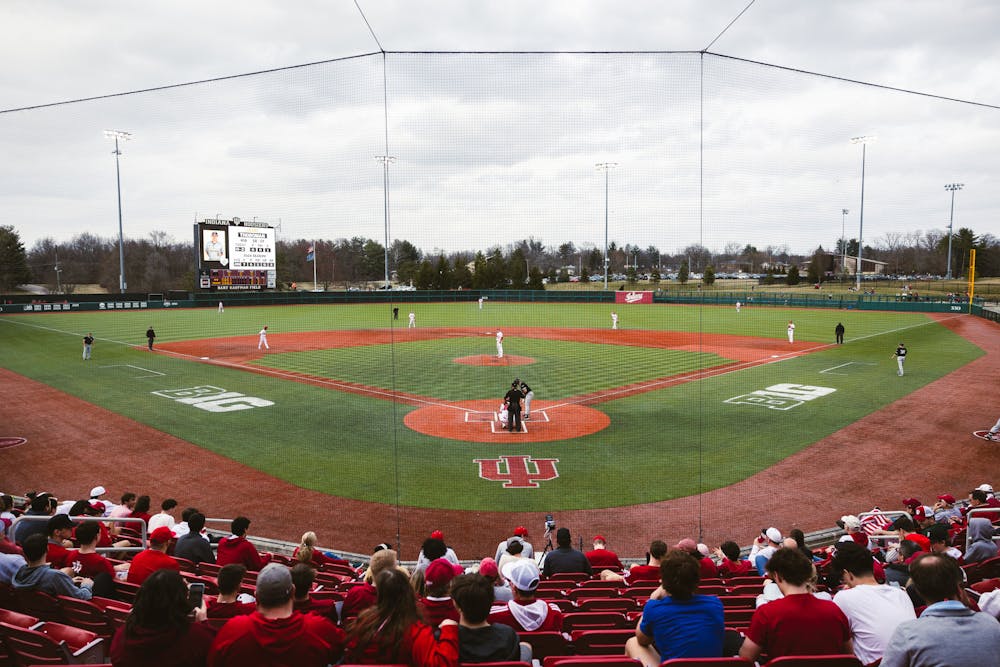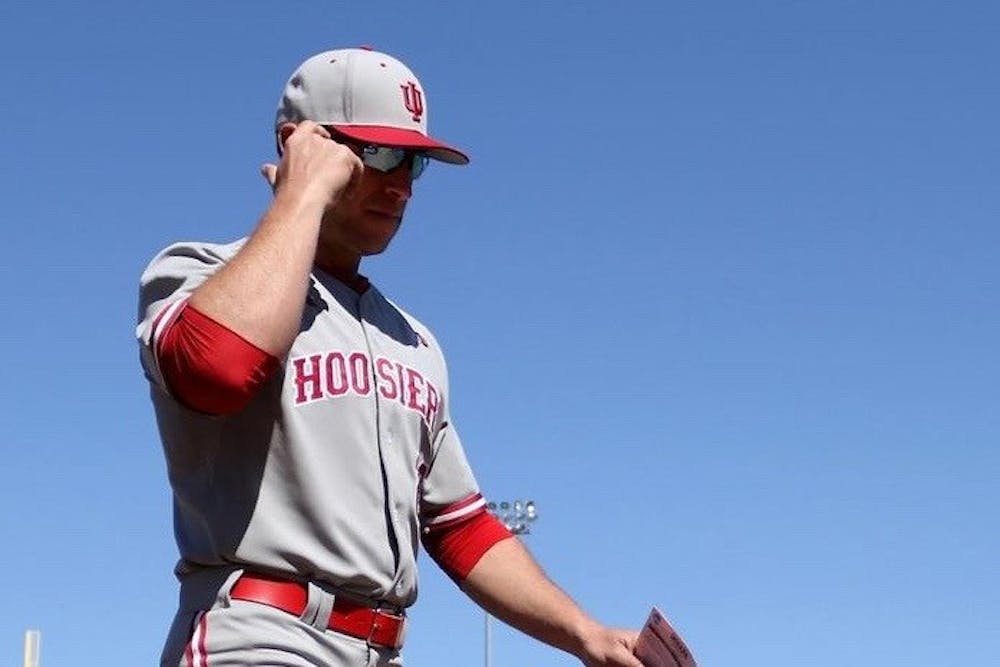Indiana head coach Jeff Mercer can’t help but feel excited for the future of Big Ten college baseball.
Due to a number of factors, including geographical roots and financial revenue realities, the sport has always taken a backseat to the likes of football or men’s and women’s basketball. But as the conference expands west with USC, UCLA, Washington and Oregon entering the fold next season that, in totality, bring 84 NCAA tournament appearances, 29 College World Series trips and 13 national championships to the table, there’s a real, refreshed appetite for league success in college baseball.
New Big Ten commissioner Tony Pettiti might be just the man to lead that charge. His resume is packed with experience in leadership positions relevant to the ball diamond — he’s the former chief operating officer for Major League Baseball, and was once the president and chief executive officer of MLB Network. Mercer’s first impressions left him more than confident in that.
“I sat down in the Big Ten head coaches meeting with the new commissioner for three or four hours earlier this fall. I mean, you talk about — we are so fortunate to have him be a part of this,” Mercer told The Hoosier Network in an interview this spring. “When you sit around someone who really has a great feel for the pulse of all the topics that he’s discussing, it’s super impressive.
“We’re very fortunate to have someone that cares about baseball and is such a well-rounded and experienced person.”
Add in Scott Dolson, the IU athletic director, overtaking a position as a conference representative on the NCAA Tournament selection committee — something Mercer called a “huge deal” for Big Ten and Midwest baseball alike — and Indiana’s coach feels like he’s got the right partners to work with in continuing to make baseball a priority in Bloomington and beyond.

That’s depicted through various improvements made with baseball’s benefit in mind. This season, Bart Kaufman Field has visible pitch clocks that eliminate the guesswork of knowing whether the pace of the game is moving correctly from the third base umpire’s count. Assembly Call reports that replay review systems, which will be mandatory for the 2025 season and beyond in conference play, are making an early entrance to the facility and could be ready for utilization as soon as this weekend for the IU-Belmont series.
The previous athletic department regime built the Bart, the state-of-the-art turf diamond the Hoosiers call home that allows them to be home earlier in the season and weather more of the elements northern baseball brings.
Yet, the current situation that college baseball finds itself in presents a few caveats of its own.
Mercer has long-since lobbied that playing a summer sport in the winter can’t be a forever thing. The sport is growing in popularity both in Bloomington and around the country — the 2023 College World Series in Omaha was the most-attended and most-watched ever. However, avoiding March Madness and occupying a completely separate part of the athletic calendar may have the potential for an even bigger boom.
But Mercer says continuing with such an early start date, such as the Feb. 16 opening day and Feb. 20 home opener the Hoosiers had this season, may not be financially feasible — especially with the new landscape the sport is taking as college sports continue to evolve, where revenue is king and controls most decisions made surrounding the entire governing body of collegiate sports. Indiana has a craving for baseball, and as the community embraces the Hoosiers, it’s not hard to envision a more-oft-packed home environment if elements such as weather, team success and time of year were more compatible with each other.
“Add west coast teams that are now going to play a summer sport in the winter,” Mercer said, “and you’re going to start to see more of a push for, hopefully, pushing the season back a month and being able to enjoy baseball in more of a fan-friendly climate.”
The sport has always been one that involves travel. Indiana took trips to Myrtle Beach and Texas twice in the season’s first three weekends.
“The reality is it’s cold everywhere in February,” Mercer said.
But with Indiana’s notorious nature for experiencing all four seasons, IU has already had two schedule alterations due to conditions not suitable for safe playing conditions. As a result, Indiana’s contest at No. 9 Vanderbilt on Tuesday night was the fourth game in a stretch of eight games in nine days.
This past weekend, IU endured 27 innings of baseball in 28 hours and three minutes’ time after inclement weather pushed the three-day set, originally scheduled to start Friday, into an abbreviated two-day tilt with a Sunday doubleheader. After IU's 13-5 loss to Vanderbilt on Tuesday, IU quickly returned home for a Wednesday evening meeting with Illinois State where first pitch takes place just 22 hours after first pitch against the Commodores. IU is set for another three-game set this weekend with the aforementioned Bruins of Belmont University.
So, when those conversations come up of what the future of college baseball looks like in an increasingly uncertain world of college sports overall, IU’s skipper hopes a pushed-back schedule is also in the realm of possibility. Because at some point, not only does it become an issue of money, Mercer reasons — coaches are more and more concerned for their players’ safety than anything.

“You back the season up a month, you still may run into a situation like this,” Mercer said after Saturday’s loss to Troy, the first of the eight-game gauntlet his Hoosiers are currently in the midst of. Players of both teams sported hoodies and cold weather gear to cover exposed skin from the harshly cold conditions the day brought. “But when you play a summer sport in the winter, you're just running the risk of those things happening.
“You’ve got guys on the field all the time, and this isn’t just us. This is across the country. You’ve got guys playing so many games and you've got so many pitches, it’s hard to manage pitchers, hard to manage guys’ health. Who’s catching, when and where, and how your guys moved around. This is a topic of conversation around the country — not just in our league, but the SEC, the ACC.”
Tommy John surgeries have become more common as more players are granted less down time as more is demanded of their arms. The Hoosiers, although not alone, have numerous players regardless of position who have endured the procedure at some point in their playing careers. The natural wear and tear the game takes on athletes’ bodies is to be considered as well.
Factor in a short ramp up time that requires throwing programs to be started individually before reaching temperatures in triple digits a month later, and the strain becomes tougher on the managerial aspect of Mercer’s job. He’s maintaining player health while trying to best position his ballclub to win games. Walking that line in a successful manner is one of the tougher tasks he’ll face this year.
It isn’t a complaint, but rather a suggestion that could assist the game he’s always known. Until that hope turns to a possible reality, he’ll manage it the best he can — as will everyone else.
That doesn’t mean the conversation won’t continue.






